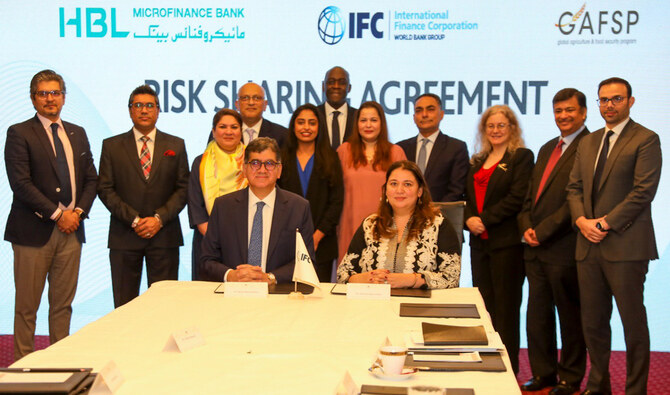HBL Microfinance Bank (HBL MfB) and Standard Chartered have signed risk-sharing agreements with the International Finance Corporation (IFC) to enhance financial accessibility in Pakistan. IFC, a member of the World Bank Group, focuses on private sector development in emerging markets.
HBL MfB’s agreement, backed by the Private Sector Window of the Global Agriculture and Food Security Program (GAFSP), will enable the bank to share 50% of the risk on its microfinance loan portfolio of up to $80 million with IFC. The initiative aims to improve access to credit for smallholder farmers and microenterprises, particularly women entrepreneurs.
HBL MfB described the agreement as a milestone in its efforts to strengthen financial inclusion and expand lending opportunities for underserved communities. The bank stated that by entering a deal of this scale, it is redefining industry standards and ensuring microfinance remains a tool for economic empowerment.
HBL MfB President and CEO Amir Khan said the agreement with IFC demonstrates the bank’s commitment to sustainable financial solutions. He emphasized that the facility serves as a model for partnerships addressing market challenges while supporting economic development. He expressed optimism that the collaboration would provide small business owners and farmers with the capital needed to expand their operations.
IFC’s Regional Head of Financial Institutions Group, Momina Aijazuddin, highlighted the significance of expanding financial access in Pakistan, particularly for small businesses and women entrepreneurs. She said IFC’s support for the risk-sharing facility is aimed at mitigating risks in HBL MfB’s lending activities while fostering growth in agriculture and entrepreneurship.
Separately, Standard Chartered announced plans to expand its existing unfunded Risk Participation Program with IFC from $200 million to $400 million to improve trade finance accessibility. The bank stated that the enhanced facility would allow it to continue supporting short-term trade and working capital needs for major local corporations and exporters.
Standard Chartered emphasized that the expanded program will help increase foreign exchange inflows by strengthening trade financing, supply chain solutions, and sustainable finance initiatives. The bank’s CEO, Rehan Shaikh, said the collaboration with IFC will enable clients to expand their businesses despite economic challenges.
Despite macroeconomic constraints, microfinance banks in Pakistan continue to expand their outreach to low-income populations. While microfinance institutions account for only 1.3 percent of total financial sector assets, their customer base remains extensive. Government data shows that over the past five years, microfinance banks’ total assets have grown at an average annual rate of 19.1 percent.




